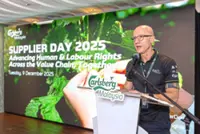“I choose companies that practise sustainability. I research their policies and practices and find out the measures undertaken as proof of their efforts.
“I’m ‘allergic’ to greenwashing (misleading claims about a company’s environmental practices). It’s not just packaging but a company’s overall footprint, business practices and promise to consumers. It boils down to having respect for consumers and the environment.”





